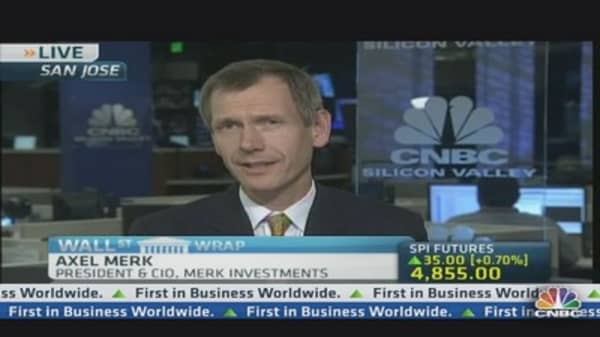Investor confidence in emerging markets is continuing to plummet, with a recent fund managers' survey showing that equity investment in the group of countries has fallen to its lowest level since December 2008.
The BofA Merrill Lynch Fund Manager Survey for June showed that about 9 percent of asset allocators were underweight emerging market equities - the first underweight reading since 2009 and down from a 3 percent overweight position in May.
"A net 25 percent of the global panel say that emerging markets is the region they would most like to underweight in the coming 12 months - the lowest ever reading," the BofA Merrill Lynch report said.
The bearish sentiment towards emerging markets is tied to investors' growing belief that a hard landing in China is now the greatest tail risk to global markets, according to the survey. About 31 percent of the regional fund managers said that China's economy will weaken in the next 12 months, compared with 8 percent in May.
(Read More: Awaiting China PMI: Things Could Get Even Worse)
"The biggest contrarian play in the market today is assets linked to China. The lows in emerging market equity and commodity allocations suggest the market has over-positioned itself for a shock from China," Michael Hartnett, chief investment strategist at BofA Merrill Lynch Global Research said.
Fears of a slowdown in the world's second largest economy has led several major banks and international agencies in the past month to downgrade their growth forecasts for China in 2013, with some even calling for gross domestic product (GDP) to dip below 7 percent in the second half of the year. China's official target for the year is 7.5 percent.
Emerging market equity funds, meanwhile, saw their largest outflow of the year with investors pulling $5.76 billion last week, according to data provider EPFR Global.
(Read More: Goldman Bets on Cheapest Asia Market After China)
Stuart Oakley, managing director of Asian currency trading at Nomura said the emerging market sell-off has only just begun, and he expects the withdrawal of funds to accelerate when the Fed starts tapering on easing in September.
"There's still a huge amount of foreign money invested in emerging market assets and in emerging market currencies. It could come out eventually," Oakley told CNBC.




